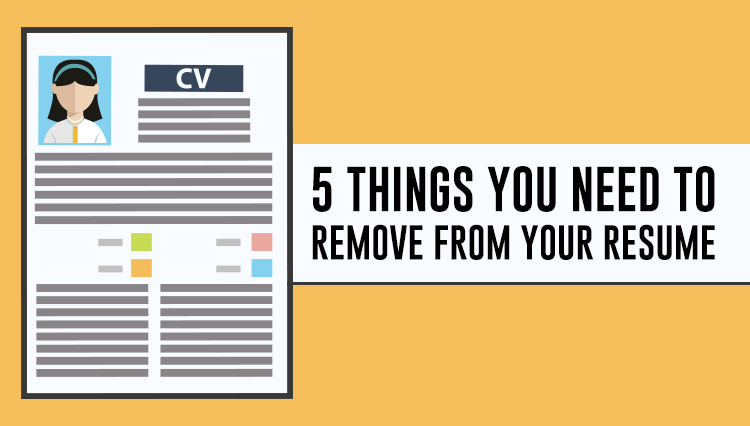A resume is a complete picture of your professional background, and for that reason, it must contain information relevant to what potential employers are looking for. The idea is to utilize the limited space available in order to present the most useful information. We have, for this reason, come up with a list of things that you will be better off without when you update your CV in 2017. While some of these changes may seem insignificant to some, keep in mind that every line of space available on your resume is an asset – one that you should use to your maximum advantage.
That being said, here are the 5 things you need to remove from your resume this year:
Unprofessional Contact Information
We’ll just cut straight to the chase- it’s 2017 and this is as good a time as any to ditch that cool email address you made for yourself in high school. When applying for a job, always use contact information that reflects professionalism If you want hiring managers to take you seriously, stick to listing simple email addresses. If you are in need of a new address, try using combinations of your first and last name along with some numbers (such as your year of birth) until you find a username that is available.
Languages Spoken
Unless the nature of your job requires you to state so, there is no need to list the languages that you have command over. While being able to speak multiple languages is an impressive skill,it does not really improve your chances of being hired. You should use the space on your resume to list your key selling points instead of all of your attributes.
“References Given Upon Request”
A resume is not supposed to include a list of references from your current or prior employers. That information is to be provided on a separate document, should the need arise. Some candidates try to avoid this by simply including a line at the bottom of their document which reads out as “references given upon request” – this too, is not necessary either and should much rather be replaced by statement s that add value to your overall profile.
Too Many Details About Your College Years
Freshly graduated candidates don’t have much of a choice when it comes to sharing details about their college or university achievements – after all, these are the most recent and significant highlights of their young careers. However, more experienced applicants need to cut down on the amount of information they share within this section of their resume. This includes omitting information such as the number of projects that were taken up within these institute, the awards obtained during this time and any other academic participation which could be outmatched or replaced by the professional experience gained in later years. We understand that these events were important, but it is time to let them go. Your post-graduate body of work should be your primary focus.
Formatting Errors
While not a specific domain or entry on a resume, we feel like it’s time to address the issue of using unprofessional formatting on resumes. While there is no universal format as to how a CV is supposed to look like, certain things are meant to be avoided regardless. Hiring managers need to take you seriously if they are to become interested in choosing you for a potential opening – using a variety of fonts, relying on lengthy bullet points and adding unnecessary designs and borders to your resume may prevent that from happening. Remember, your resume is not the ideal place to express your love for art!





